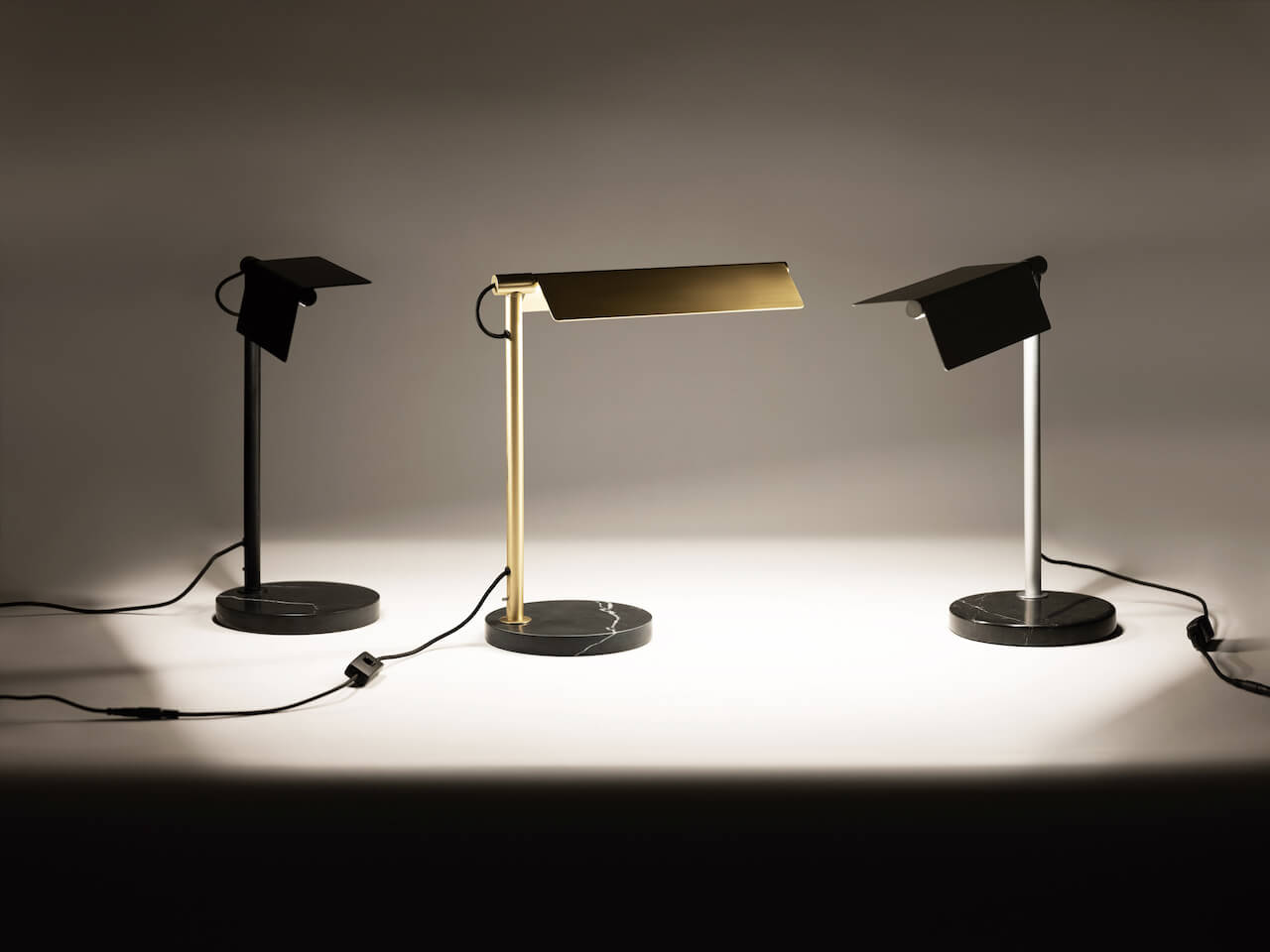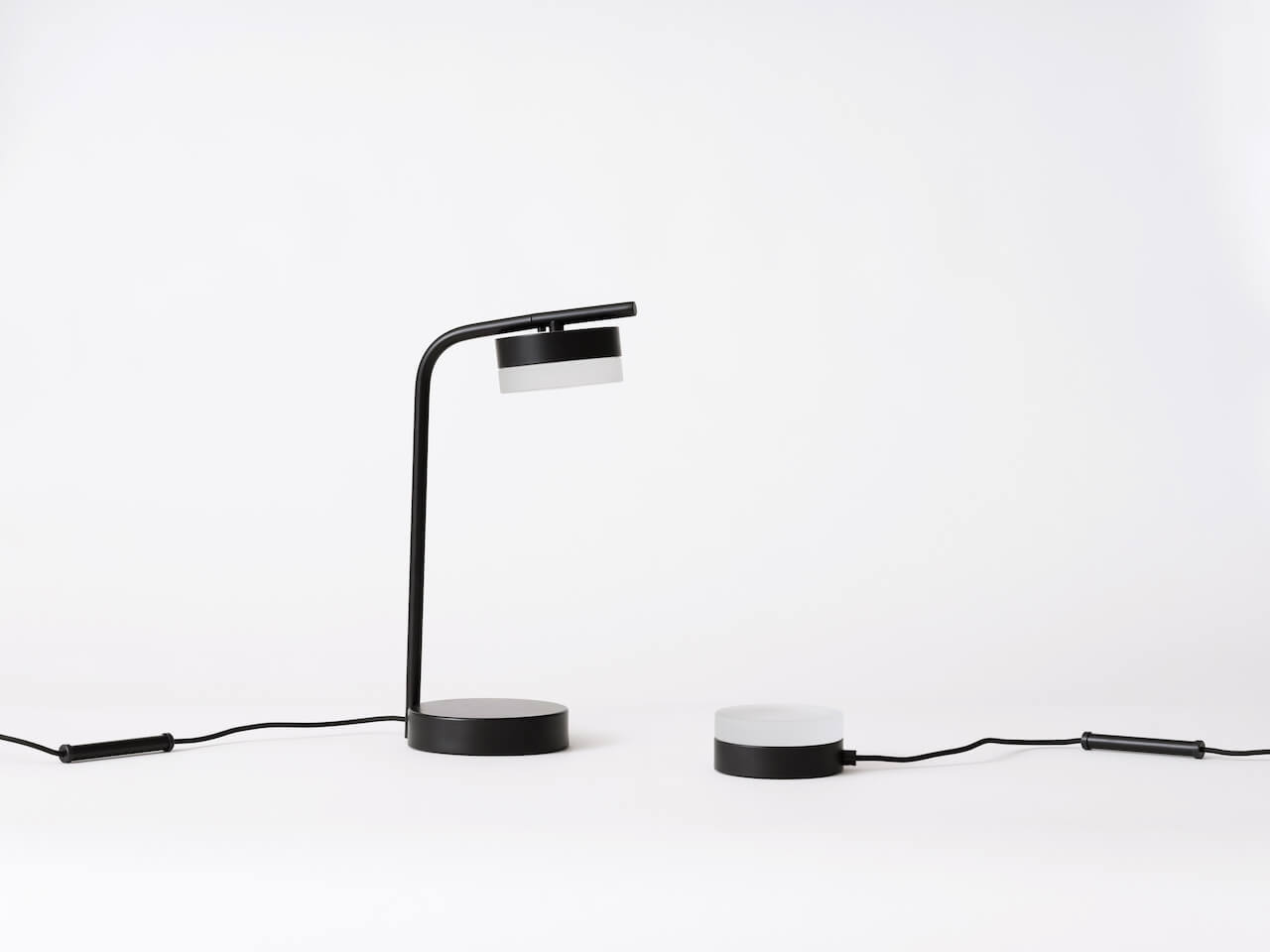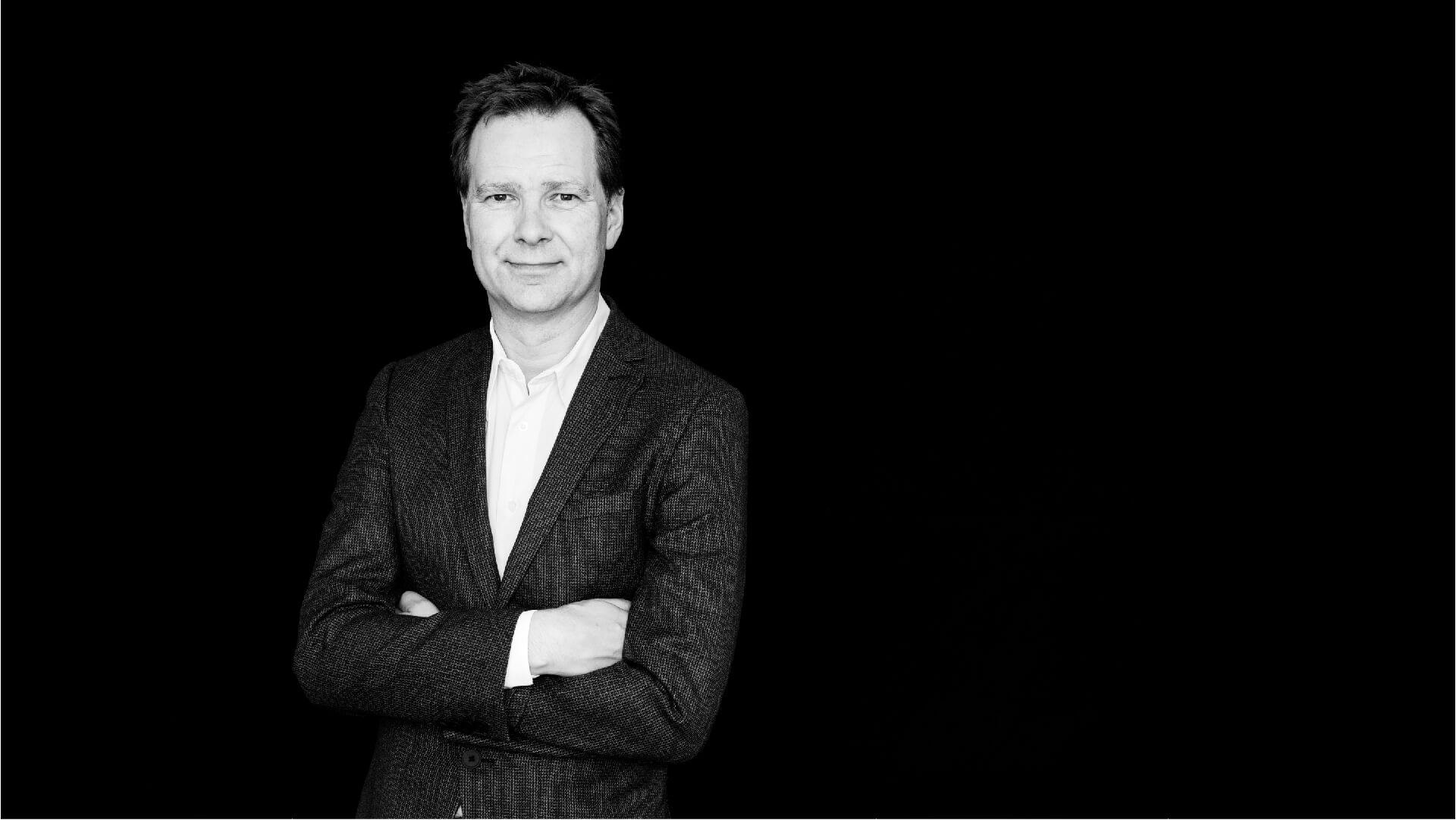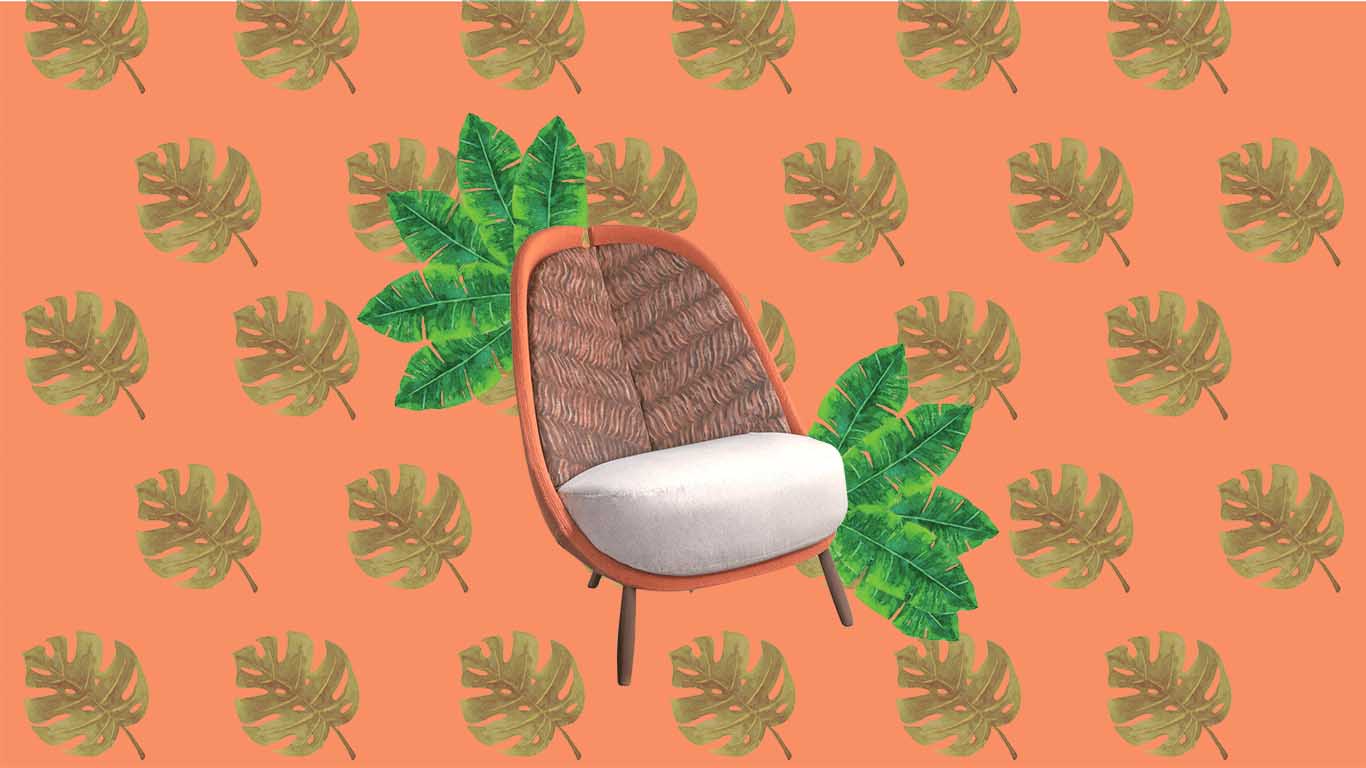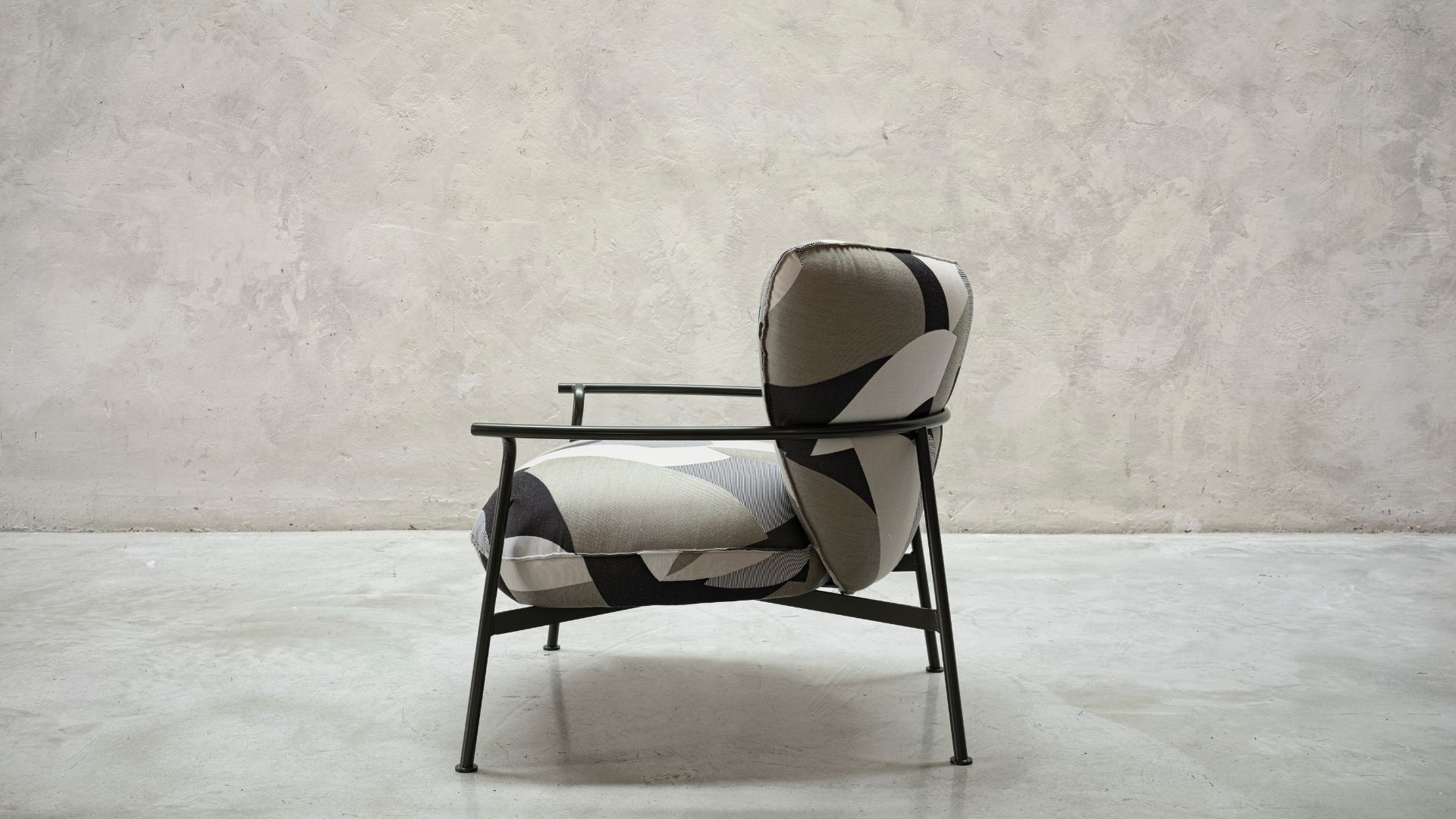Working smarter, not harder, is the key to designing your ideal life

For the Canadian furniture and home goods brand EQ3 it has always been a priority to think about the future, creating timeless and quality design pieces that are sustainable and meet every need of the consumer.
As the Accessories Product Developer at EQ3, based in Winnipeg, Manitoba, I lead the design and development for the brand’s accessories collections, as well as the packaging task force that looks to the ongoing development of eco-friendly and consciously created product packaging.
My education was focused on environmental design and architecture, so when I decided to pivot away from this, I made sure to work for a brand that prioritizes these standards of quality.

Based on my experience designing accessories for both the home and home office environments, I envision the future of work will prioritize individual freedom – the freedom to have a flexible schedule and the freedom to make a workspace your own, whether that means creating a home office that harnesses not only productivity but creativity or re-imagining the traditional office post-pandemic.
Before COVID-19 disrupted the workforce, there were essentially two types of workspaces. One is the ‘cold’ office that has always focused on productivity, maximizing space, and uniformity in design – think cubicles and bad fluorescent lighting. The second being the recently trendy co-working spaces, which seem to focus only on lifestyle and social aspects, picture large communal tables and Instagramable corners.
Tired of working indoors? Move your office outside, try the Workstation Cabin.

What we can learn from watching employees all over the world flock to their make-shift home offices, is that people should have the opportunity to personalize their space beyond the traditional options.
A desk tucked into a corner of your living room, a dedicated home office, or an executive suite in a downtown office building, each employee should be able to ask themselves what works best for their life. What environment encourages your most productive self? What environment would you enjoy working at every day? Everyone is different and your space should reflect this.
At EQ3, we design our products to meet a need and function with elegance while allowing for customizations that suit individual styles. We see customization as a tool for solving a problem. Home offices should be comfortable, functional, and approachable.

Ideally, your office should be in a separate room, or a corner of your home where you can separate yourself from the tv and distractions. An L-shape desk, such as the Novah L-Desk, defines the room and provides the surface area to spread out. A statement rug, like the Atlas rug, adds coziness under your bare feet and warmth you miss back in the office.
If you don’t have a separate home office – as many cannot – find ways to delineate between your work and comfort space. Use strategic lighting to brighten the space during work hours. Turn on a table lamp, such as the Oxford Table Lamp, to focus on your work.
When you’re ready to relax at the end of the day, turn it off or get a lamp that dims, such as the Row Table Lamp, to set the mood. If space is tight, the Climb shelving unit with a built-in desk is a great option for added storage and makes the most out of your square footage. This divide gives you a mental signal that you’re either in work mode or not.
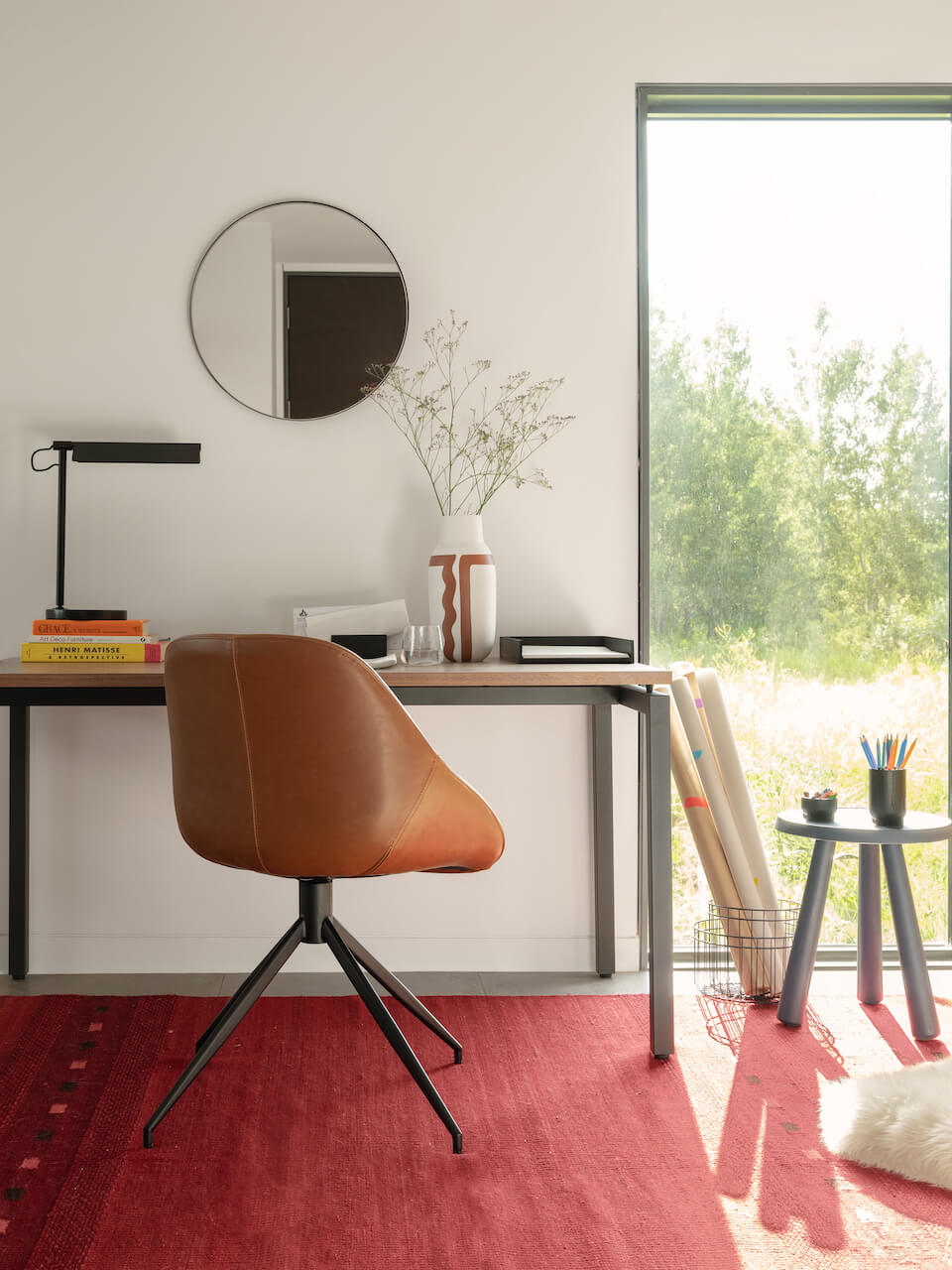
As the workforce continues to evolve and our workspaces become more flexible, our work arrangements and workdays may follow suit. Brands and businesses are already shifting their office models, allowing their employees to work from home for a percentage of their week.
The typical North American mindset is that success means working long, hard hours and everyone should strive for this. However, businesses might come to realize that a shift to a permanently shortened workweek could benefit their employees and their productivity.
If allowed to scale back our work weeks and customize our workspaces, our society might realize that working smarter, not harder, is the key to designing your ideal life.
What’s an holistic approach to designing workspaces? Spiritual designer Kelly Robinson told us in this interview.



